In contact with the beyond: a mysterious structure
Just south of the Palace (AP), a keyhole structure began to appear. The two images to the right show the structure covered by a protective tarp as the rest of the walls of the Palace.Back to top
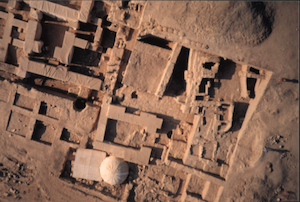
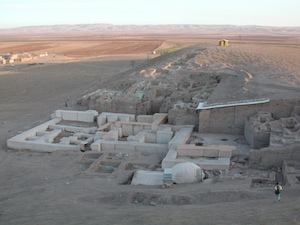
OVERVIEW / SITE / Excavations / 037c.htm
M. Kelly-Buccellati, 2006
Updated April 2023, M. De Pietri
In contact with the beyond: a mysterious structureJust south of the Palace (AP), a keyhole structure began to appear. The two images to the right show the structure covered by a protective tarp as the rest of the walls of the Palace.Back to top |


|
A deep underground shaftIt became quickly apparent that we were dealing with a deep circular underground shaft, fronted by a square chamber that was accessed through a very narrow and steep staircase. Within the structure, there was a very regular set of accummulations, as you would find in a private house. But clearly the total lack of light and air made it impossible to consider this as a normal residential structure.Back to top |
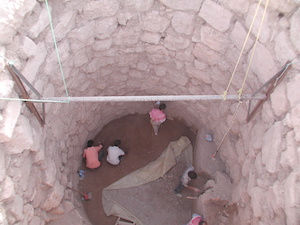
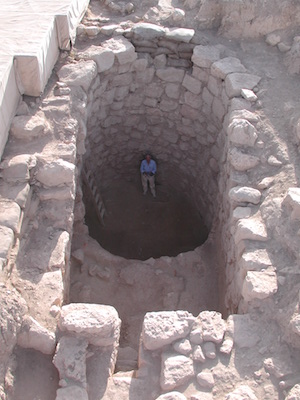
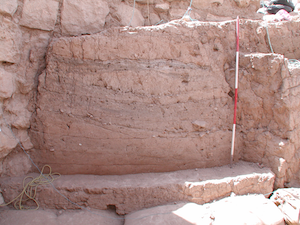
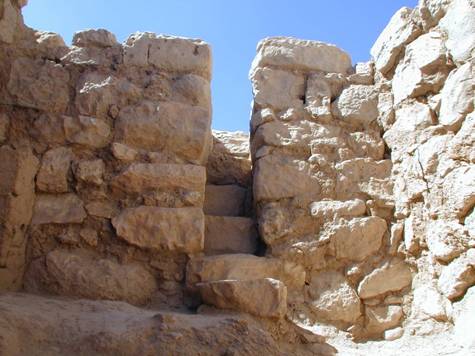
|
Faunal remainsThe final element of the puzzle was also the one that led us to a convincing interpretation. The animal bones from the deep shaft were primarily of piglets and puppy dogs. Hurrian texts preserved by the Hittites (some 1000 years after the date of our structure) tell us that these animals were sacrificed in hollow circles to evoke the deities of the Netherworld. The Hurrian word for these circles is ābi (the Hittite counterpart is āpi(t)-, also comparable to the Hebrew ߴob (אֹוב), attested e.g. in 1 Sam. 28:7). Ours, then, is an archaic and monumental Hurrian ābi (see unit book on A12).Back to top |
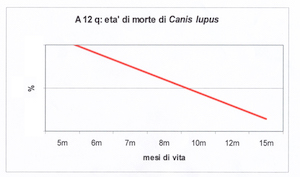
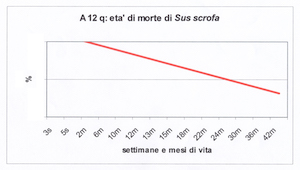
|
The darknessThe nature of the rituals performed in the ābi explains several of its salient features. The darkness is suited for a setting that aims to put humans in touch with the Netherworld. And the steep staircase makes sense if we think of its top landing as the equivalent of a trap door – normally blocked by massive boulders aimed at keeping the spirits of the Netherworld from surfacing of their own volition.Back to top |
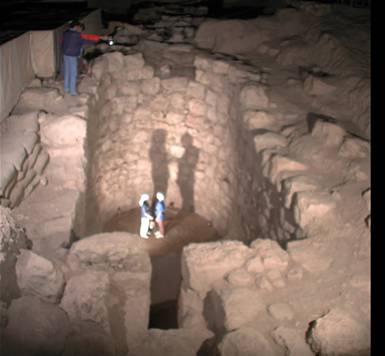
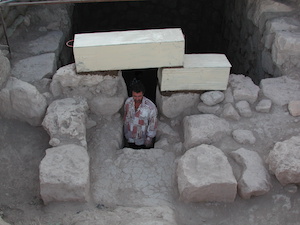
|
The objectsTwo objects found in the ābi were of special interest. The first is a vessel in the shape of a pig, which is consonant with the finds of the piglet bones. The second is a miniature anthropomorphic vessel, in the shape of a naked woman carrying a small jar on her head. The mouth of the woman is distorted, as if to imitate the whisper of the spirits. We know in fact that their voices, resembling the chirping of birds, had to be interpreted by a medium (often a woman; cf. 1 Sam. 28:7; cf. also Mes-Rel.Back to top |
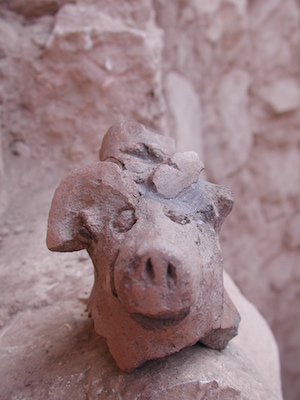
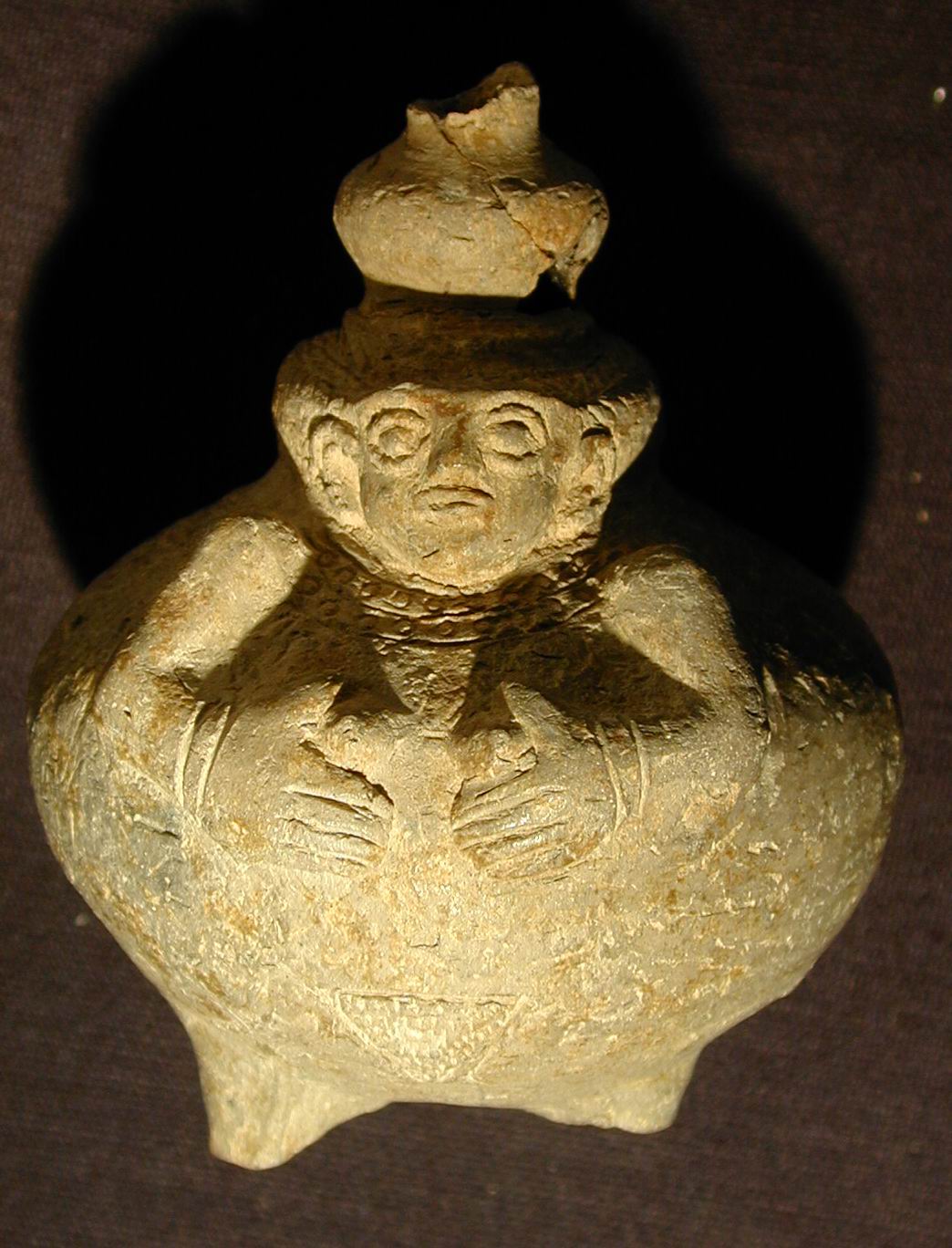
|
Three building phasesThe structure was in existence before the Royal Palace (AP), and it was in the form of a simple shaft open to the sky. When the Palace was built, the shaft was enlarged by the addition of the square chamber and the stairway. At that point, it was also covered by a corbelled vault, which was then in turn covered with dirt.Back to top |
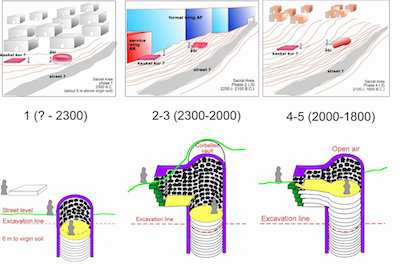
|
Bibliography and linksFor bibliography about the ābi, see the related bibliographical page in the e-Library.A digital monograph on this topic (by M. De Pietri) is also going to appear in the companion Mesopotamian Religion website. |